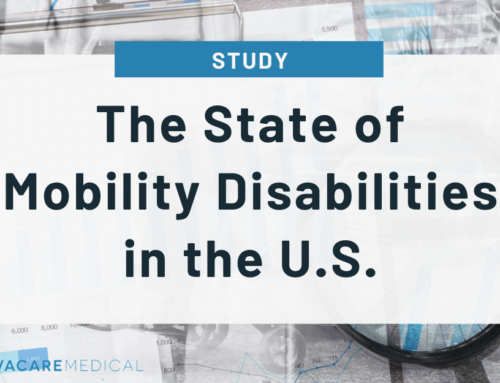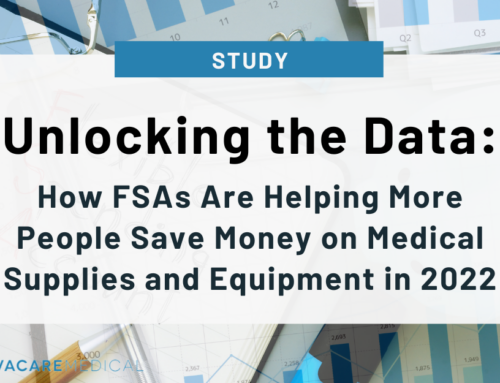Vitamin D articles abound, and new knowledge regarding vitamin D’s multiple roles in the human body is frequently released. According to new research, vitamin D is a member of letter vitamins. Injury causes skin cells to require more vitamin D. Vitamin D regulates the genes that produce cathelicidin, an antimicrobial peptide that the immune system employs to combat infections.
Vitamin D is required to protect skin wounds from infection and begin the normal healing process, and it is also considered an aid for daily living for those in need of them every day. A vitamin D shortage can weaken the body’s natural defenses against infection, making patients more susceptible to germs. These reactions were previously overlooked as part of the human damage response.
Vitamin D is a fat-soluble vitamin that isn’t found in many foods. Vitamin D can be found in high-fat salmon, fortified cereals, and nutritional drinks. When the skin is exposed to UV rays from the sun, the body produces this nutrient endogenously. Vitamin D is chemically inert and requires a chemical process to add a hydroxyl group into an organic molecule. This chemical mechanism converts vitamin D to calcidiol and calcitriol, which the body may absorb.
The importance of the “Sunshine Vitamin.”
The Sunshine Vitamin is the other name for vitamin D, important for skin protection and renewal. Calcitriol aids in skin cell development, repair, and metabolism in its functional form, and it strengthens the skin’s immune system and aids in the destruction of free radicals that cause premature aging. Specialty supplements have also been reported to help with acne and psoriasis, while the mechanism is unknown.
Our bodies manufacture vitamin D on their own when we are exposed to the sun, but too much sun accelerates the aging of our skin. The sun can harm this delicate organ over time, causing wrinkles, sun spots, and an increased risk of skin cancer.
When sun exposure is limited, such as during the winter months, it’s crucial to have vitamins and mineral supplement levels through your diet and supplements to benefit from these vitamins. However, topically administering vitamin D to the skin can help maintain excellent skin health and improve some skin disorders.
Antibacterial can be found in vitamin D.
Many individuals do not recover fully despite advancements in cut and wound therapy over the last decades. Cuts, scrapes, and wounds can take a long time to heal for some people, and infection is also a possibility. Severe cut and chronic wounds victims are more susceptible to sepsis, an infection-related, potentially fatal illness. A growing body of data suggests that you don’t need to have that much intake of antibiotics and septic products because vitamin D has antibacterial qualities and can help you fight infection.
Who needs vitamin D for cuts?
Vitamin D is essential for bone health, immunological function, cell growth, and wound healing. Some individuals are more sensitive to vitamin D shortage than others. These are some of the possible groups:
- Senior citizens
Senior citizens who spend a lot of time indoors may risk vitamin D insufficiency. According to research, nearly half of older persons worldwide with hip fractures may have insufficient vitamin D levels. In addition, as people get older, their skin’s ability to manufacture vitamin D decreases. Seniors with small cuts or curable wounds should take at least some multivitamins rich in vitamin D for a fast recovery.
- People who aren’t exposed to enough sunlight.
Housebound people, people who work night shifts, and people who cover their skin for religious reasons may not get enough sunlight. In addition, people who live in colder climates may get less sunlight throughout the winter. A cut would take some time to recover for these people. The best way to be proactive with this one is to take some vitamins and mineral supplements.
- Dark skin people
Dark skin tones have more melanin, which reduces the quantity of vitamin D produced by the skin. Sun-generated vitamin D is produced more slowly by those with darker skin tones than those with lighter skin tones. It’s unclear, however, whether this has any health implications. Due to other hereditary characteristics, Black people have much fewer bones fractures and lower incidences of osteoporosis than white people, so vitamin D supplementation for bone health may not be necessary.
- Obese people
Obesity is linked to reduced vitamin D levels in people with a max body index or BMI of 30 or above. Additionally, people who have had gastric bypass surgery may require more vitamin D. The additional fat under the people with obesity holds on to more vitamins and alters how it enters their bloodstream affecting the wound healing process. Obese people must be aware of their blood pressure at all times. To check them, they’re advised to use a blood pressure monitor for an accurate result.
- Malabsorption patients
Inflammatory bowel disease, for example, impairs the gut’s ability to absorb vitamin D. Due to dietary limitations, patients with these diseases may be unable to consume vitamin D-rich foods. Malabsorption patients must be aware that they aren’t capable of digesting or absorbing any nutrients from the food, making their immune system weak against cuts, scrapes, and wounds. A Peptamen Complete Elemental Nutrition can help them.
- People with osteoporosis
Osteoporosis affects women aged 60 to 70 years old, and two-thirds of them are aged 80 and up. If getting enough vitamin D isn’t enough, the body won’t be able to absorb the minerals it needs to maintain the bones’ health. Osteoporosis is more probable to happen in people who have insufficient calcium intake. The body needs vitamin D to absorb calcium. The lack of vitamin D means that calcium absorption is also involved.
Final Thoughts
Vitamin D shortage and insufficiency are extremely frequent, and they can have a severe impact on one’s health and well-being. We may reverse vitamin D insufficiency easily and affordably, and it has been related to various health advantages. Applying antibiotics and septics ointments available at AvaCare’s ePharmacy is still more advisable if you have cuts and wounds.
Here at AvaCare Medical, we value every concern and query you have. Some cuts and wounds are sometimes confusing. Here with us, we can help you with your problem! Consisting of medical experts and affordable products, this is the best one for you! For more information, please email us here at info@avacaremedical.com or contact us here at 1-877-813-7799.



